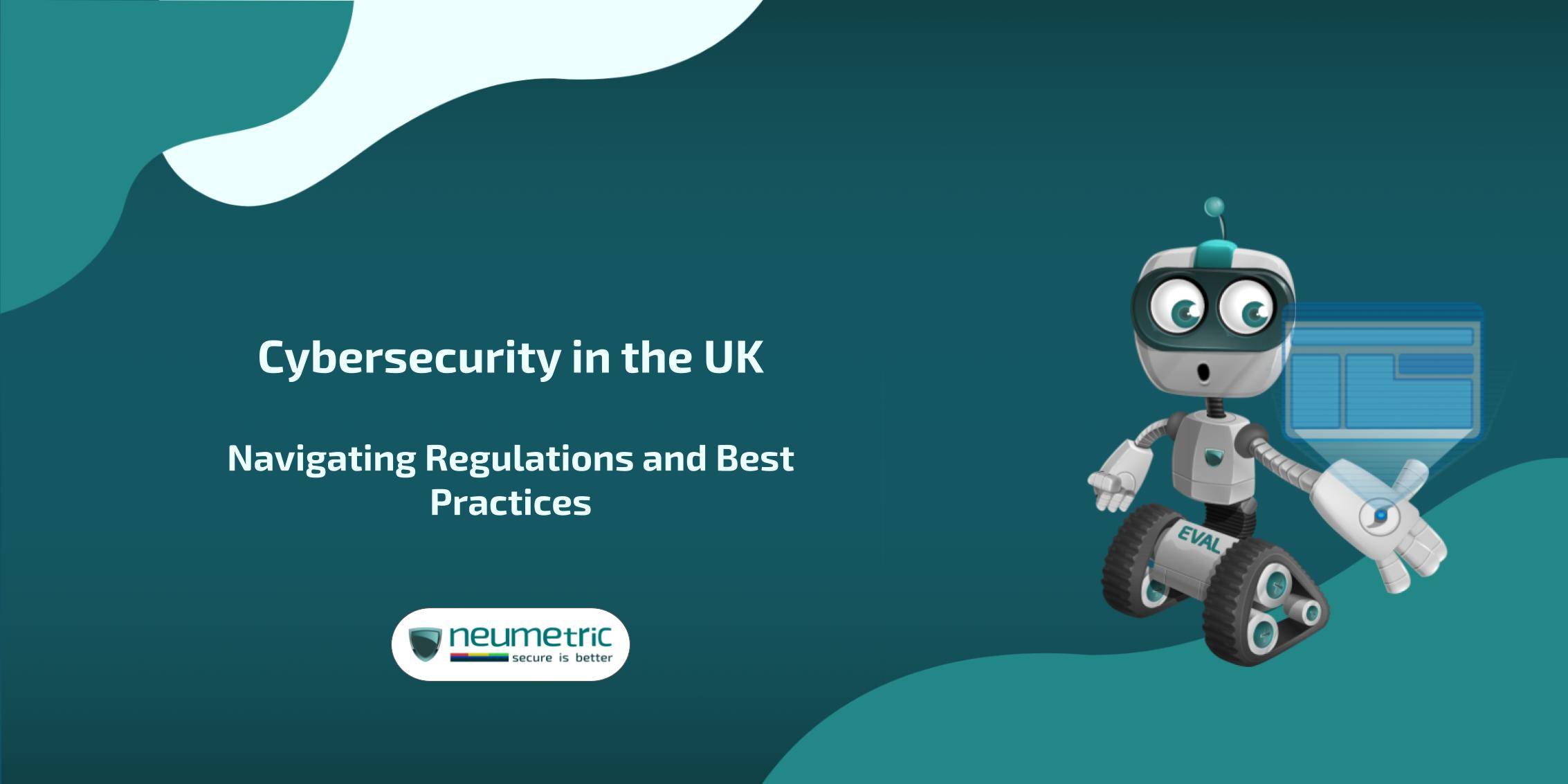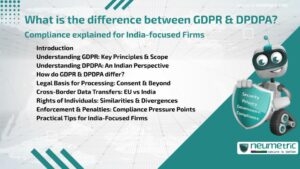Table of Contents
ToggleIntroduction
Cybersecurity is not just a buzzword; it’s a crucial shield against a myriad of digital threats that can compromise the Confidentiality, Integrity & Availability [CIA] of data. In the context of the United Kingdom [UK], where technology is deeply integrated into various facets of daily life, the importance of robust cybersecurity measures cannot be ignored.
From safeguarding personal information to protecting the intellectual property of businesses, cybersecurity plays a pivotal role in maintaining the trust & integrity of digital ecosystems. As we delve into this Journal, we’ll unravel the layers of cybersecurity regulations & best practices that contribute to the resilience of the UK’s digital infrastructure.
Growing Threat Landscape in the UK
The threat landscape in the UK is dynamic & ever-evolving. Cyber adversaries, ranging from individual hackers to sophisticated state-sponsored groups, are constantly adapting their tactics to exploit vulnerabilities. This dynamic environment poses challenges for businesses, government agencies & individuals alike.
The rise of cyber threats such as ransomware attacks, data breaches & phishing scams underscores the urgency of understanding & implementing effective cybersecurity measures. As we navigate through this Journal, we’ll explore the specific threats that the UK faces & how regulations & best practices aim to fortify our defenses against these evolving challenges. It’s a landscape that demands vigilance & proactive measures to ensure the digital resilience of the nation.
Understanding UK Cybersecurity Regulations
In the complex landscape of UK cybersecurity, a framework of regulations plays a pivotal role in shaping & reinforcing the defense against digital threats. Let’s take a concise look at three key regulatory pillars:
GDPR & Its Impact on Cybersecurity
The General Data Protection Regulation [GDPR] isn’t just about protecting personal data; it significantly influences cybersecurity practices. At its core, GDPR revolves around principles of data protection, ensuring that individuals have control over their personal information. Cybersecurity compliance under GDPR involves aligning strategies to safeguard data Confidentiality, Integrity & Availability [CIA], ensuring a harmonious coexistence with these fundamental principles.
NIS Directive: A Framework for Essential Services
The Network & Information Systems [NIS] Directive establishes a framework specifically designed for essential services. Its scope encompasses a wide range of critical infrastructure, from energy & transport to healthcare. The directive sets out requirements aimed at ensuring the robustness & resilience of these crucial services against cyber threats. Understanding the applicability & adhering to the outlined requirements is key for organisations operating in these vital sectors.
UK Cyber Essentials Scheme
For businesses looking to enhance their cybersecurity posture, the UK Cyber Essentials Scheme provides a structured path. The scheme offers a practical & achievable set of security controls to guard against common online threats. This section will explore the overarching framework of the Cyber Essentials Scheme, providing a brief overview & insight into the implementation & certification process. It’s a valuable guide for organisations seeking a foundational approach to cybersecurity.
Best Practices for Cybersecurity in the UK
As we navigate the dynamic landscape of cybersecurity in the UK, adopting best practices becomes paramount for resilient defence. Here, we outline key strategies:
Employee Training & Awareness
- Importance of Human Element in Cybersecurity: The human element remains a critical factor in the cybersecurity equation. Employees, being the first line of defence, need to be aware of potential threats & equipped with the knowledge to navigate the digital landscape securely.
- Training Programs & Resources: Cyber threats constantly evolve & so must the knowledge & skills of employees. Whether it’s recognising phishing attempts or understanding social engineering tactics, well-informed employees contribute significantly to a robust cybersecurity posture.
Robust Access Control Measures
- Role-Based Access Control [RBAC]: Limiting access to information based on roles is a fundamental principle in cybersecurity. The concept of Role-Based Access Control [RBAC] emphasises how assigning permissions according to job responsibilities helps mitigate the risk of unauthorised access.
- Two-Factor Authentication [2FA]: Strengthening access controls involves more than just passwords. Two-Factor Authentication [2FA] adds an additional layer of security, significantly reducing the risk of unauthorised access.
Regular Security Audits & Risk Assessments
- Conducting Effective Security Audits: Regular audits are essential to identify vulnerabilities & ensure compliance with cybersecurity policies.
- Identifying & Mitigating Risks: Risk assessment is a dynamic process that aids in identifying potential threats & vulnerabilities.
Emerging Technologies & Cybersecurity Challenges
In the ever-evolving landscape of cybersecurity, staying ahead requires a keen understanding of emerging technologies & the challenges they bring. Here, we explore two critical domains:
Cloud Security Considerations
- Risks & Benefits of Cloud Computing: Cloud computing offers unparalleled flexibility & scalability, but it comes with its set of challenges. From data breaches to the advantages of cost-effectiveness & accessibility, we’ll touch upon the dual nature of this transformative technology.
- Implementing Secure Cloud Practices: As organisations increasingly migrate to the cloud, ensuring the security of data becomes paramount. From encryption methods to access controls, understanding how to navigate the cloud securely is vital for maintaining a robust cybersecurity posture.
Internet of Things [IoT] Security
- Risks Associated with IoT Devices: The Internet of Things [IoT] introduces a new dimension to connectivity but also brings about unique cybersecurity challenges. The risks associated with IoT devices, from potential data breaches to unauthorised access should be considered. Understanding these risks is crucial for organisations integrating IoT into their operations.
- Ensuring IoT Security Compliance: IoT security compliance involves aligning practices with established standards to mitigate potential risks. Whether through encryption protocols or regular software updates, organisations need to adopt measures that guarantee the secure integration of IoT devices into their networks.
Conclusion
In conclusion, navigating the cybersecurity landscape in the UK requires a holistic understanding of key regulations & best practices. From the foundational principles outlined by GDPR to the targeted focus on critical infrastructure in the NIS Directive & the practicality of the UK Cyber Essentials Scheme, compliance & implementation form the bedrock of a robust cybersecurity strategy. As we underscore the significance of employee training, access control measures & regular security audits, the human element emerges as a crucial factor in maintaining digital resilience.
Embracing emerging technologies, such as secure cloud practices & IoT security, demands a proactive approach to address evolving threats. In this dynamic environment, the key lies not just in compliance but in fostering a culture that prioritises cybersecurity. The importance of proactive measures cannot be overstated, as organisations & individuals alike must stay vigilant in the face of an ever-adapting threat landscape. It is through this collective commitment to cybersecurity that the UK can fortify its digital defences, ensuring a secure & resilient digital future.
As we conclude, let us remember that cybersecurity is a shared responsibility & by adopting these principles, we contribute to a safer digital ecosystem for all. For further insights & updates on cybersecurity trends, stay connected with us. Your journey to a secure digital presence starts here.
Frequently Asked Questions [FAQ]
Why is cybersecurity crucial in the UK & how does it impact individuals & businesses?
From safeguarding sensitive data to maintaining the trust of clients, cybersecurity plays a pivotal role in ensuring the integrity & confidentiality of digital interactions. Individuals & businesses alike rely on robust cybersecurity measures to navigate the digital landscape securely & protect against evolving threats.
How can employees contribute to cybersecurity & why is their awareness so important?
Employees are the frontline defenders in the realm of cybersecurity. Their awareness & actions directly impact an organisation’s resilience against cyber threats. Understanding the basics, from recognising phishing attempts to being vigilant about data security, empowers employees to be active participants in maintaining a secure digital environment. Ongoing training programs & accessible resources ensure that employees stay abreast of the latest cyber threats, contributing significantly to an organisation’s overall cybersecurity posture.
With the rise of emerging technologies, what challenges does the UK face in terms of cybersecurity & how can businesses stay ahead?
The integration of emerging technologies like cloud computing & IoT brings both opportunities & challenges. While these technologies offer efficiency & connectivity, they also introduce new cybersecurity risks. Businesses need to navigate these challenges by implementing secure practices tailored to each technology. From encrypting data in the cloud to ensuring IoT devices adhere to security standards, staying ahead in cybersecurity involves a proactive approach that aligns with the evolving digital landscape.





